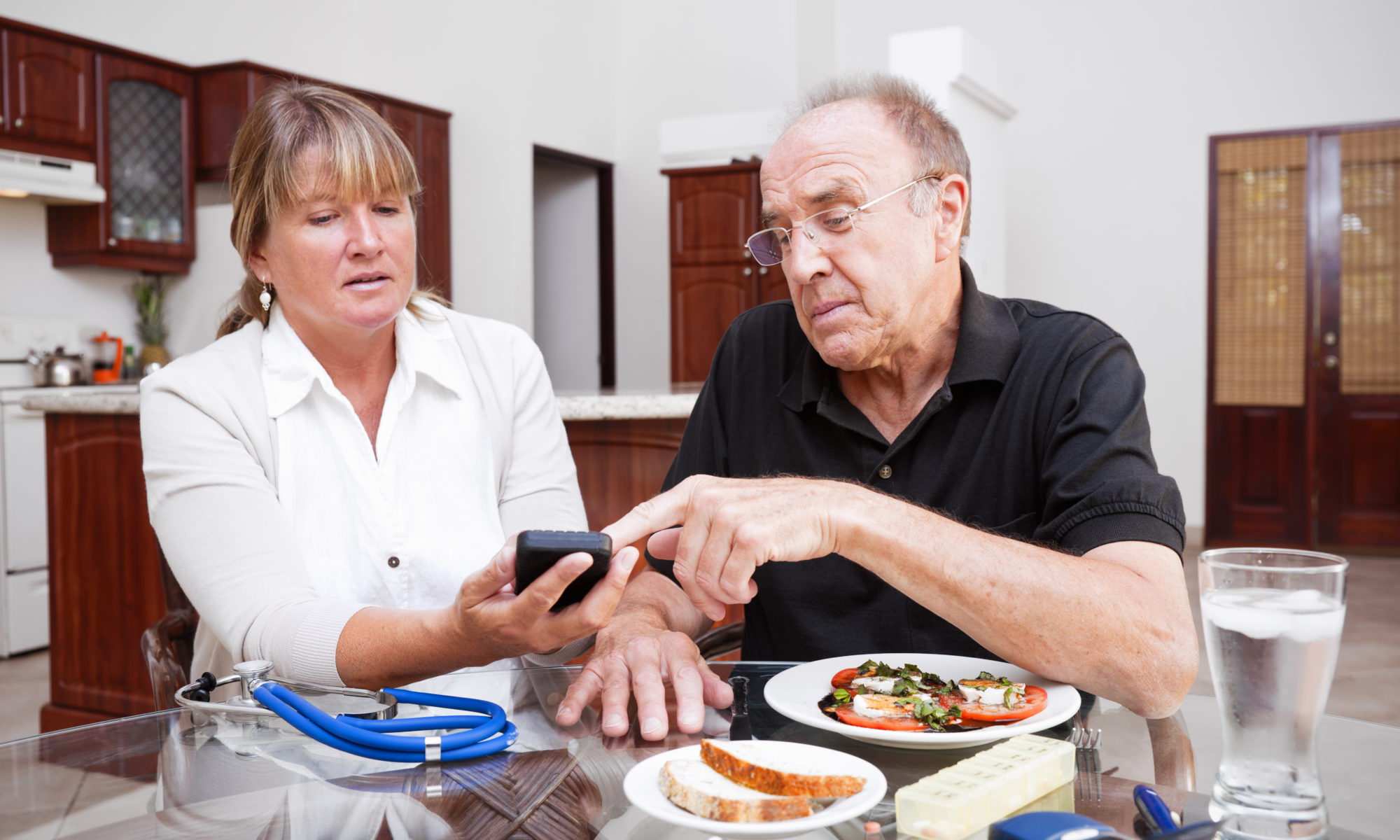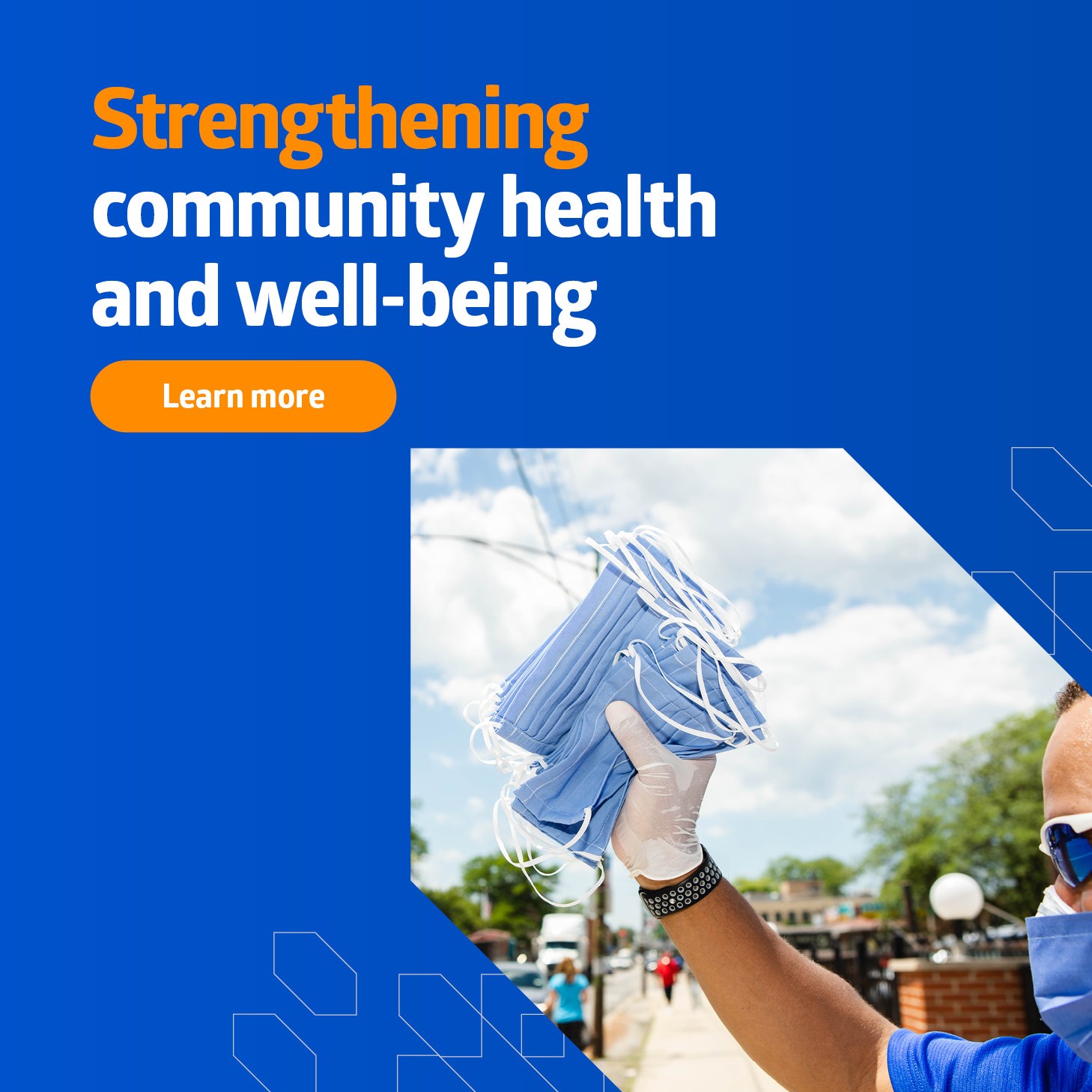How to address isolation’s toll on nutrition

Registered Dietitians can help avoid unintended consequences of social isolation
By Amy Rogers | December 8, 2020
Nutrition affects every aspect of our health. From our brain to our gut, skin, heart and teeth, what we feed our bodies makes a difference. Healthy diets can strengthen immune systems and help reduce the risk of chronic diseases such as type 2 diabetes, heart disease, obesity and certain cancers.
None of these facts have changed due to the ongoing COVID-19 pandemic.
In fact, caregivers should be extra vigilant about keeping an eye on residents’ nutrition during these times. The isolation brought on by social distancing measures can cause ripple effects that, if left untreated, can lead to a range of negative health outcomes.
Social isolation may be crucial for keeping residents safe during the pandemic, but it can severely impact a person’s mental health. Loneliness is associated with decreased appetite and dietary intake, both of which are risk factors for malnutrition. Before the pandemic, residents may have joined their friends in the dining room and received staff assistance to feed themselves. Now, dining rooms are closed and the residents eat alone. If they do need assistance or encouragement, staff have to enter their rooms and tend to them individually. Residents who struggle to feed themselves are at the highest risk for decreased dietary intake.
Screening for malnutrition by asking the right questions
Now more than ever, it’s essential that healthcare providers routinely use a validated nutrition screening tool to screen for malnutrition risk. If someone is at risk, they should be referred to a registered dietitian for an individualized plan of care. Accurate documentation is equally important. When dietary intake is charted, any changes can trigger a prompt intervention.
If a clinician does not have the opportunity to visually confirm what a resident ate by inspecting their dining tray, they should ask open-ended questions to understand what and how much the person consumed. Asking, “Did you eat breakfast?” is not enough to gain a full understanding about dietary intake because they may say “yes” but that yes only meant a few bites of food. Rather, asking “What did you eat for breakfast?” and “How did you feel when eating breakfast?” will provide more accurate qualitative insight into the person’s dietary intake.
Proper nutrition to reduce risk of pressure injuries
Additionally, nutrition plays a vital role in whether a person develops a wound and how they heal. One of our own Medline sales representatives experienced a scary situation with an older relative living at an assisted living facility. The relative developed a wound that was having trouble healing. Upon asking a series of questions, it was discovered that nutrition was not an integral part of the care plan. After just a few weeks of incorporating a robust nutrition plan, the wound started to heal properly.
Inadequate nutritional intake is linked to development of pressure injuries, severity of injury and length of healing time.1 During times of stress, such as when healing a wound, the body requires more protein and calories to heal. Protein promotes a positive nitrogen balance needed for new tissue. If the person does not consume enough protein the body cannot grow new tissue making it difficult to heal the wound.
National Pressure Injury Advisory Panel (NPIAP) recommends that older adults should consume 1-1.5 g of protein per kg of body weight per day.1 If someone is unable to meet these requirements with food, nutrition supplementation is recommended. Focusing on optimizing nutrition intake helps heal the wound from the inside out, while topical skin care and wound care treatments work from the outside.
Healthcare facilities owe it to their residents to make sure that dietitians are fully integrated into their care teams. Studies show that patient outcomes and satisfaction improve and length of stay decreases when healthcare professionals take an interdisciplinary team approach to care.2,3
COVID-19 has changed how facilities approach keeping their residents safe, and that needs to include a renewed focus on nutrition.
Their health, inside and out, depends on it.
Learn more about how Medline is advancing the nutrition needs of patients at http://punchout.medline.com/category/Nutrition/cat1470145.
1. NPIAP guidelines 2019, https://npiap.com/page/Guidelines
2. 4. Fewster-Thuente L & Velsor-Friedrich B 2008, ‘Interdisciplinary collaboration for healthcare professionals’, Nursing Administration Quarterly, 32(1):40-48.
3. 5. Youngwerth J & Twaddle M 2011, ‘Cultures of Interdisciplinary Teams: How to Foster Good Dynamics’, Journal of Palliative Medicine, 14(5):650-654.
Amy Rogers, RN, BSN
Clinical Nurse Specialist
Amy Rogers is responsible for clinical education for Medline’s nutrition team. She focuses on using nutrition as a tool for early intervention to improve individual outcomes across the continuum of care. She also works with clinicians on best practices for using enteral devices. Prior to Medline, Amy Rogers worked as a bedside nurse at Northwestern Medicine, Chicago, IL.

